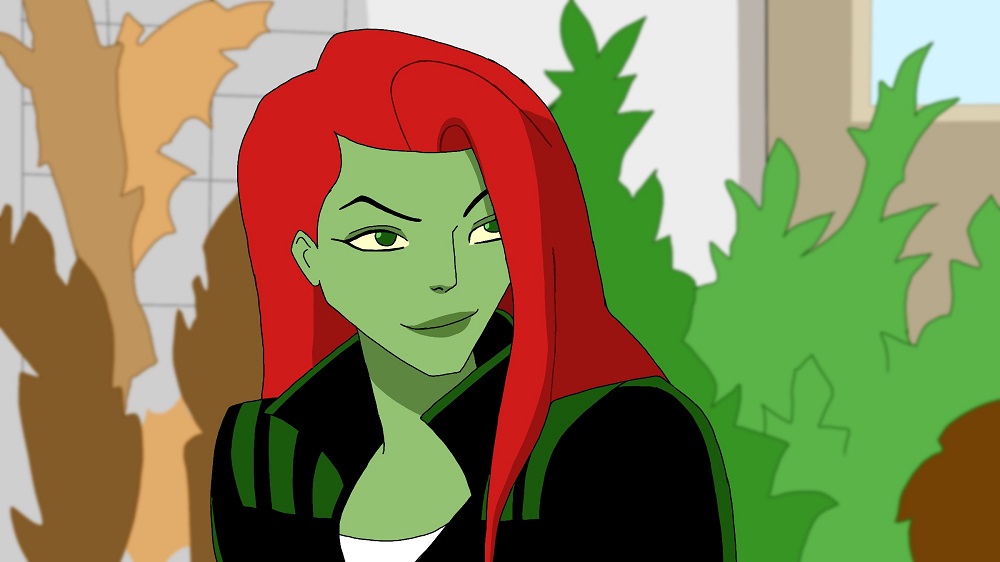Facts About Poison Ivy: The Botanical Bad Girl From DC |

|
|
Sam's random Poison Ivy drawing! |
|
More Comic Characters: Pamela Isley, the alluring and deadly Poison Ivy, is far more than just a botanical villain in the DC Comics universe. This eco-terrorist with a green thumb and a kiss that can kill boasts a rich history and fascinating complexities. Whether you're a die-hard fan or just starting to explore her thorny world, prepare to be captivated by these fun and intriguing facts about Poison Ivy! From Botanist to Bio-TerroristBefore she became the seductive siren of the plant kingdom, Pamela Isley was a brilliant but shy botanist in Seattle. A fateful encounter with her manipulative professor, Dr. Jason Woodrue (later known as Floronic Man), led to an experiment that infused her with plant toxins, forever altering her physiology and mindset. Kiss of Death (Literally!)One of Poison Ivy's most iconic abilities is her toxic touch, often manifested through her kiss. Depending on the storyline, this kiss can range from a mild sedative to a lethal poison, making any romantic encounter with her a deadly gamble. ChlorokinesisThe Power of Green: Ivy possesses chlorokinesis, the ability to control and manipulate plant life. She can make vines grow at an astonishing rate, create thorny barriers, and even animate plants to do her bidding. This makes her a formidable opponent in Gotham's urban jungle. Immunity to ToxinsIronically, the toxins that transformed her also granted her complete immunity to all poisons, venoms, and diseases. This makes her a walking biological weapon and incredibly difficult to subdue through conventional means. A Deep Connection to the GreenPoison Ivy has a profound and almost mystical connection to "The Green," the elemental force that connects all plant life on Earth. This connection grants her an intuitive understanding of the plant world and sometimes even allows her to communicate with it. Not Always a VillainWhile often portrayed as an antagonist, Poison Ivy's motivations stem from a deep love and protectiveness of the natural world. She often sees humanity as a destructive force and acts to safeguard plants and the environment, sometimes putting her at odds with traditional heroes. Harley Quinn's Unlikely BFFOne of the most beloved and complex relationships in the DC universe is the unlikely friendship (and sometimes more) between Poison Ivy and Harley Quinn. Their dynamic offers moments of humor, vulnerability, and unwavering loyalty, showcasing a different side to these often-villainized characters. Multiple Origins, One Green HeartWhile the core story of her transformation remains relatively consistent, different comic book iterations and adaptations have offered slight variations on Poison Ivy's origin and the specifics of her powers. However, her unwavering dedication to the plant kingdom remains a constant. More Than Just BeautyDon't let her alluring appearance fool you. Poison Ivy is a brilliant tactician and strategist. She uses her knowledge of botany and her control over plants to create elaborate traps and execute cunning plans. A Love-Hate Relationship with BatmanAs one of Batman's recurring adversaries, Poison Ivy presents a unique challenge. While their confrontations are often physical, there's also an underlying tension and understanding. Batman recognizes the validity of her environmental concerns, even if he disagrees with her extreme methods. Evolving AppearancePoison Ivy's visual representation has evolved over the years. From her initial appearance with leafy green skin to more subtle green hues or even natural skin tones adorned with plant life, her design reflects her connection to the botanical world. Beyond the ComicsPoison Ivy's popularity has transcended the comic book pages. She's appeared in numerous animated series, video games, and even live-action adaptations, each offering a unique take on this complex and captivating character, solidifying her status as a key figure in the DC universe. Poison Ivy is a Force of NatureIn more ways than one, Poison Ivy is a force of nature. Her unique powers, compelling motivations, and intricate relationships make her a truly unforgettable character. So next time you see a vine creeping across a Gotham alleyway, remember the thorny and fascinating world of Poison Ivy! Poison Ivy Fun Facts FAQsInterested in learning more about Poison Ivy? Check out some more facts! What are Poison Ivy's main powers?Poison Ivy's primary abilities include chlorokinesis (the control and manipulation of plant life), immunity to all toxins and diseases, and a toxic touch or kiss that can range from sedative to lethal. She also has a deep connection to "The Green," the elemental force of plant life. Why did Pamela Isley become Poison Ivy?Pamela Isley was a brilliant botanist who was experimented on by her manipulative professor, Dr. Jason Woodrue. This experiment infused her with plant toxins, altering her physiology and giving her her powers, as well as instilling in her a deep protectiveness of the plant world and a distrust of humanity. Is Poison Ivy a villain or an anti-hero?Poison Ivy is often portrayed as a villain due to her extreme methods in protecting the environment, which often put her at odds with humanity and Batman. However, her motivations stem from a genuine concern for the natural world, leading some to consider her more of an anti-hero with understandable (though radical) goals. What is Poison Ivy's relationship with Harley Quinn?Poison Ivy and Harley Quinn have a close and complex relationship that has evolved over the years. They are often depicted as best friends and partners in crime, offering each other loyalty, support, and sometimes even romantic affection. Their dynamic is a fan-favorite and explores themes of female friendship and independence. What are Poison Ivy's weaknesses?While immune to toxins, Poison Ivy can be vulnerable to things that harm plant life, such as herbicides, extreme cold, and dehydration. She can also sometimes be outsmarted by those who understand her deep connection to and emotional investment in the plant world. |